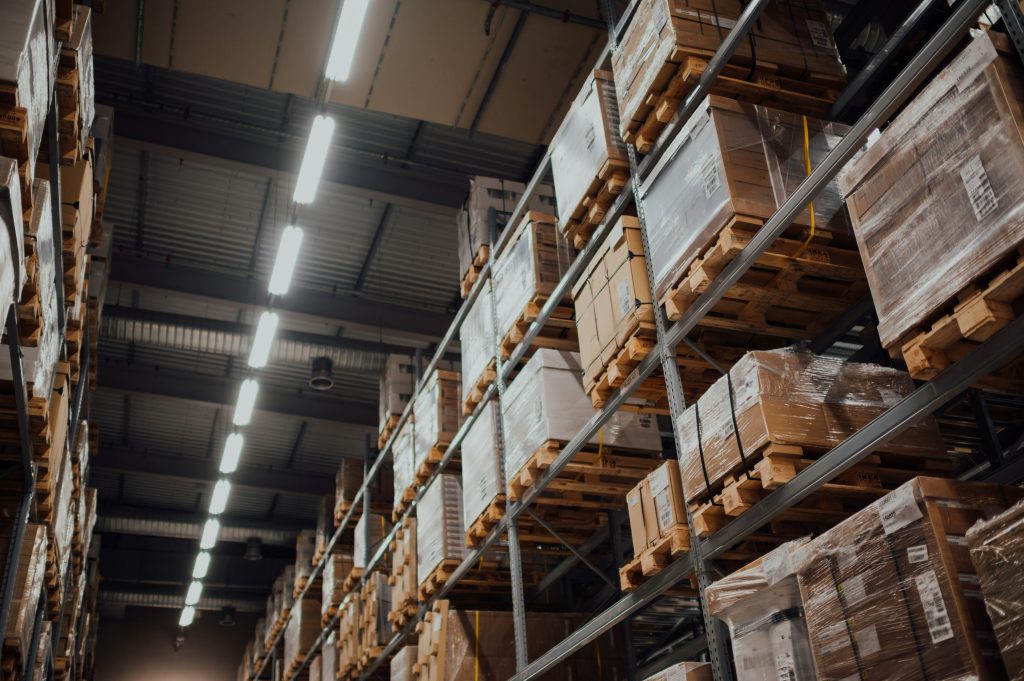
As an Amazon seller, one of the most critical decisions you'll make is how to get your products to your customers. Your choice of fulfillment method impacts your costs, your time, your scalability, and your customers' experience. The two primary models are FBA (Fulfillment by Amazon) and FBM (Fulfillment by Merchant).
- FBA (Fulfillment by Amazon): In this model, you send your products in bulk to Amazon's fulfillment centers. When a customer places an order, Amazon's team handles the entire fulfillment process—from storage to picking, packing, shipping, and customer service.
- FBM (Fulfillment by Merchant): In this model, you, the seller, are responsible for all order fulfillment tasks. You store your own inventory, and when an order comes in, you are responsible for packing the item, shipping it to the customer, and handling all customer service and returns.
FBM (Fulfillment by Merchant): The Hands-On Approach
Opting for FBM means you manage all aspects of the customer journey. This requires significant effort but offers a level of control that FBA does not.
Strengths of FBM
- Complete Brand Control: This is a major advantage for brand-focused businesses. With FBM, you control the entire customer experience. You can use custom-branded boxes, include marketing inserts or thank-you cards, and ensure your product is packed with care. This is impossible with FBA, which uses standard Amazon-branded boxes.
- Higher Profit Margins (on certain items): You avoid the many fees associated with FBA, such as fulfillment fees, monthly storage fees, and long-term storage penalties. This makes FBM the clear winner for products that are large, heavy, or slow-moving, as the FBA fees for these items can destroy profitability.
- Direct Customer Relationship: You handle customer service, which means you get to interact with your customers directly. This provides invaluable feedback and allows you to build a direct relationship and email list for your brand, which Amazon's FBA policies typically obscure.
- Inventory & Business Flexibility: You are not subject to Amazon's strict inventory rules. You don't have to worry about "restock limits" (which can cap how much inventory you can send to Amazon) or the new "inbound placement fees" for sending items to multiple warehouses. If you sell on other channels (like your own website or eBay), managing one pool of inventory is far simpler.
Weaknesses of FBM
- No Automatic Prime Badge: This is the most significant disadvantage. FBM listings do not automatically get the Amazon Prime badge. Customers are overwhelmingly conditioned to look for and trust the Prime badge, which promises fast, free shipping. Lacking it can cause your sales to plummet, even if you offer your own fast, free shipping.
- Losing the "Buy Box": The "Buy Box" (the "Add to Cart" or "Buy Now" button) accounts for over 80% of sales. Amazon's algorithm heavily favors FBA sellers for the Buy Box because Amazon can guarantee the shipping and service. As an FBM seller, it is much more difficult to compete for and win the Buy Box, even if your price is lower.
- Full Logistical Responsibility: The burden of fulfillment is entirely on you. This includes finding and paying for warehouse space, managing inventory, buying shipping supplies, packing every order, and standing in line at the post office (or arranging carrier pickups). It also means you must manage all customer service inquiries and process all returns.
- Difficulty Scaling: The FBM model is hard to scale. As your orders increase, your time spent packing boxes increases linearly. A sudden spike in sales can become an operational nightmare, whereas an FBA seller simply sees their sales numbers go up as Amazon handles the extra volume.
FBA (Fulfillment by Amazon): The Scaling Solution
Using Amazon FBA means outsourcing your entire logistics operation to Amazon's massive, world-class network.
Strengths of FBA
- The Amazon Prime Badge: This is the single biggest advantage. Your products automatically qualify for free, one-day or two-day Amazon Prime shipping. This builds immediate customer trust, dramatically increases your product's visibility, and taps into the "buy now" impulse of millions of Prime members.
- Winning the Buy Box: FBA is one of the most heavily weighted factors in the Buy Box algorithm. FBA sellers will almost always win the Buy Box over FBM sellers, even when priced slightly higher. More Buy Box time equals more sales, period.
- Hands-Off Logistics & Customer Service: Amazon handles everything. This frees you from the daily grind of packing and shipping, allowing you to focus on high-value tasks like marketing, product sourcing, and growing your business. Amazon's 24/7 customer service also handles all inquiries and returns for your FBA orders.
- Customer Trust & SEO: In addition to the Prime badge, customers trust Amazon to deliver. Furthermore, Amazon's A9 search algorithm appears to favor FBA listings, giving you a slight boost in search results over FBM competitors.
Weaknesses of FBA
- Complex & Rising Fees: This is the primary downside. FBA is not cheap. You will pay Fulfillment Fees (per-unit for pick, pack, & ship), Monthly Storage Fees (based on volume, and much higher in Q4), and Aged Inventory Surcharges (for items stored too long). In recent years, Amazon has also added Inbound Placement Fees (for an "easier" single-warehouse shipment) and Low-Inventory-Level Fees (a penalty for not keeping enough stock).
- Loss of Brand Control: Your product will arrive in an Amazon-branded box. You have no ability to include marketing materials or create a custom unboxing experience. You are building Amazon's brand, not just your own.
- Strict Inventory & Restock Limits: You don't control your own inventory. Amazon can (and does) impose restock limits, capping the number of units you can send, which can stifle growth. Your inventory is also spread across Amazon's network, making it difficult to recall quickly.
- Impersonal Return Policy: Amazon's customer-centric return policy is notoriously open. This is great for customers but can lead to a higher rate of returns (and associated fees) for sellers, as buyers can return items more easily, sometimes in used condition.
FBA or FBM: Which is Superior?
The best choice depends entirely on your business, products, and goals.
- FBM is often a good fit for:
- Niche or Handmade Products: Where branding and a personal touch are key.
- Large, Heavy, or Bulky Items: Such as furniture or gym equipment, where FBA fees would be astronomical.
- Slow-Moving or Luxury Goods: Items that sell infrequently and would incur high FBA storage fees.
- Multi-Channel Sellers: Businesses that want one central inventory to fulfill orders from their own website, eBay, and Amazon.
- FBA is the clear choice for:
- High-Volume Sellers: Anyone focused on rapid growth and scaling.
- Small, Lightweight Products: Items that are cheap to store and ship via FBA.
- Competitive Niches: Where the Prime badge and Buy Box are essential to compete.
- Sellers Who Value Time: Business owners who want to be "hands-off" with logistics.
A Third Option: Hybrid Approaches & Seller Fulfilled Prime (SFP)
You don't have to be all-in on one. Many successful sellers use a hybrid model:
They use FBA for their fast-moving, lightweight "hero" products to maximize sales.
They use FBM for their new product launches (to test the market) or their large, slow-moving items.
There is also an "expert-level" FBM option called Seller Fulfilled Prime (SFP). This program allows FBM sellers to get the Prime badge on their listings while still shipping from their own warehouse. However, the requirements are incredibly strict and expensive to meet, including nationwide two-day delivery, weekend shipping, and maintaining near-perfect performance metrics.
Creating a successful brand requires considerable effort. FBA lifts the heavy logistics burden, allowing you to focus on growth. FBM gives you ultimate control, which is essential for certain products and brand strategies.
The choice is not permanent. Many sellers start with FBM to control costs, then transition their winning products to FBA to scale. The smartest sellers re-evaluate this choice for every single product they add to their catalog.








